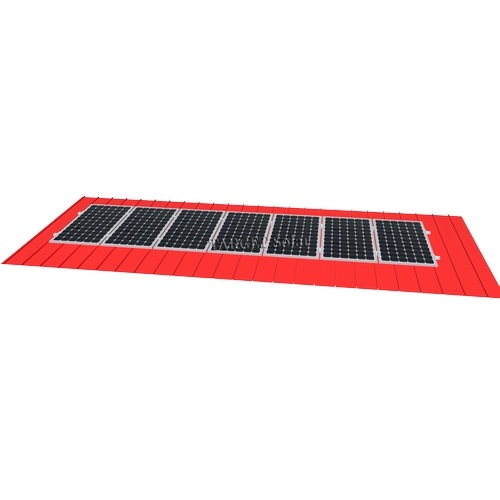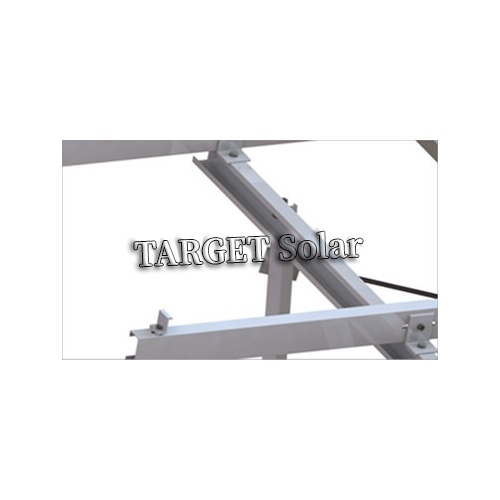Release Time: Apr 22,2025
Essential Guide to Cement Roof PV Support for Lighting Applications
When considering renewable energy solutions, Cement Roof PV Support is a crucial component for integrating photovoltaic (PV) systems into lighting applications. This support structure plays a vital role in securing solar panels on cement rooftops, ensuring stability and durability while maximizing energy efficiency. With the increasing focus on sustainable lighting solutions, understanding the int
When considering renewable energy solutions, Cement Roof PV Support is a crucial component for integrating photovoltaic (PV) systems into lighting applications. This support structure plays a vital role in securing solar panels on cement rooftops, ensuring stability and durability while maximizing energy efficiency. With the increasing focus on sustainable lighting solutions, understanding the intricacies of Cement Roof PV Support is essential for industry professionals.
The primary function of Cement Roof PV Support is to provide a robust and reliable foundation for solar panels. These structures are designed to withstand various environmental factors, including wind, rain, and snow. By utilizing high-quality materials and engineering principles, Cement Roof PV Support systems ensure that solar panels remain securely mounted and optimally positioned to capture sunlight throughout the day.
One significant advantage of Cement Roof PV Support is its compatibility with various types of cement roofing materials. Whether you have a flat or sloped roof, these support systems can be customized to fit your specific needs. This versatility makes them ideal for different lighting projects, whether for residential, commercial, or industrial applications. Additionally, the lightweight design of many support systems minimizes the structural load on the roof, which is particularly important for older buildings or those with less robust roofing materials.
Installation of Cement Roof PV Support requires careful planning and execution. Professionals should assess the roof's structural integrity, ensuring that it can support the additional weight of the solar panels and the support system itself. Proper alignment and angling of the PV panels are critical for optimizing energy capture. Installing the supports at the correct height and angle can significantly enhance the performance of the solar array, contributing to higher energy output for lighting applications.
Routine maintenance of Cement Roof PV Support is also essential to ensure longevity and optimal function. Regular inspections should be conducted to check for any signs of wear, corrosion, or loosening of bolts and connections. Keeping the area around the supports clear of debris will also prevent potential blockages that might affect the solar panel's efficiency.
In conclusion, understanding the importance and functionality of Cement Roof PV Support is essential for anyone involved in the lighting accessories industry. By securing solar panels effectively, these systems contribute to the reliability and efficiency of solar energy solutions. Implementing best practices in installation and maintenance will not only enhance the performance of your PV system but also support the broader goal of sustainable energy use. Investing in quality Cement Roof PV Support solutions can lead to significant long-term benefits, making it a worthy consideration for any lighting project.
The primary function of Cement Roof PV Support is to provide a robust and reliable foundation for solar panels. These structures are designed to withstand various environmental factors, including wind, rain, and snow. By utilizing high-quality materials and engineering principles, Cement Roof PV Support systems ensure that solar panels remain securely mounted and optimally positioned to capture sunlight throughout the day.
One significant advantage of Cement Roof PV Support is its compatibility with various types of cement roofing materials. Whether you have a flat or sloped roof, these support systems can be customized to fit your specific needs. This versatility makes them ideal for different lighting projects, whether for residential, commercial, or industrial applications. Additionally, the lightweight design of many support systems minimizes the structural load on the roof, which is particularly important for older buildings or those with less robust roofing materials.
Installation of Cement Roof PV Support requires careful planning and execution. Professionals should assess the roof's structural integrity, ensuring that it can support the additional weight of the solar panels and the support system itself. Proper alignment and angling of the PV panels are critical for optimizing energy capture. Installing the supports at the correct height and angle can significantly enhance the performance of the solar array, contributing to higher energy output for lighting applications.
Routine maintenance of Cement Roof PV Support is also essential to ensure longevity and optimal function. Regular inspections should be conducted to check for any signs of wear, corrosion, or loosening of bolts and connections. Keeping the area around the supports clear of debris will also prevent potential blockages that might affect the solar panel's efficiency.
In conclusion, understanding the importance and functionality of Cement Roof PV Support is essential for anyone involved in the lighting accessories industry. By securing solar panels effectively, these systems contribute to the reliability and efficiency of solar energy solutions. Implementing best practices in installation and maintenance will not only enhance the performance of your PV system but also support the broader goal of sustainable energy use. Investing in quality Cement Roof PV Support solutions can lead to significant long-term benefits, making it a worthy consideration for any lighting project.
Related News
May 07,2025
Exploring the Durability of Color Steel Tile Roof Photovoltaic Brackets: A Comprehensive Guide
Exploring the Durability of Color Steel Tile Roof Photovoltaic Brackets
Table of Contents
1. Introduction to Color Steel Tile Roof Photovoltaic Brackets
2. Understanding the Materials Used in Photovoltaic Brackets
3. Key Factors Influencing Durability
3.1. Corrosion Resistance
3.2. Weather Resistance
3.3. Structural Integrity
4. Installation Best Practices for
May 01,2025
Understanding Ground-Mounted Photovoltaic Power Stations: A Sustainable Energy Solution
Ground-mounted photovoltaic power stations are an essential component of the renewable energy sector, particularly in the realm of solar energy. These systems consist of solar panels that are installed on the ground rather than on rooftops or other structures. This configuration allows for larger installations, making them suitable for utility-scale energy production.
One of the primary advantages
Apr 27,2025
Ground Photovoltaic Station Supports: Key Factors for Optimal Performance
Ground Photovoltaic Station Supports: Key Factors for Optimal Performance
Table of Contents
Introduction to Ground Photovoltaic Station Supports
The Importance of Quality Supports in Solar Installations
Types of Ground Photovoltaic Supports
Design Considerations for Optimal Performance
Material Selection: Choosing the Right Supports
Best Practices for Installation Techniques
Maintenance Strategie







